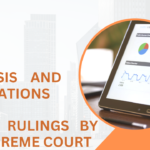Finding the best car insurance that fits your needs and budget can be tricky. By comparing rates across providers, you can make sure you’re getting good coverage at a fair price.
Thank you for reading this post, don't forget to subscribe!Factors That Affect Your Car Insurance Rates
The cost of your car insurance is based on a number of key factors. Being aware of these can help you make choices that may lower your rates.
Your Driving History and Habits
- Accidents and violations – Getting tickets or being deemed at-fault in accidents raises insurance costs. Multiple incidents further increase rates.
- Years licensed – Less experienced drivers pay more as they’re seen as higher risk. Premiums usually drop around age 25.
- Mileage – Driving over 15,000 miles per year can increase your insurance bill. Lower mileage equals lower rates.
- Defensive driver training – Completing a state approved course can sometimes lower your car insurance rates a bit.
Type and Use of Vehicle
- Vehicle make, model, trim, features – Sports cars, high-end vehicles, and those common in accidents typically cost more to insure.
- Vehicle age – Insuring a newer vehicle usually costs substantially more compared to an older one.
- Commute distance – Regularly driving longer distances raises insurance costs compared to shorter daily commutes.
- Usage frequency – Insuring a car you drive every day costs more than one used only occasionally.
<br>
Personal Factors
- Your age – Rates are highest for teens/young adults. They substantially decrease through middle age.
- Your location – Insurance rates can vary widely based on particular city or zipcode.
- Your credit score – Statistics show those with low credit scores are riskier to insure.
- Prior insurance coverage – Gaps in coverage can signal risk and increase insurance costs.
Compare Quotes From Multiple Insurers
Contrasting rates from various insurance companies is key to finding the best deal. Be sure to compare the exact same coverage amounts across each quote.
National Insurers
Large companies like State Farm, Geico, and Progressive generally offer competitive rates. As national carriers, they can leverage economy of scale.
Regional/Local Insurers
Insurance providers that operate regionally or locally may specialize in rates and packages targeting local populations and risks. These smaller companies are worth checking for deals as well.
Online Insurance Brokers
Websites like The Zebra let you fill out one form and contrast rates from over 100 insurers side by side. This simplifies the process substantially.
Review Levels of Car Insurance Coverage
Make sure you know what’s included at different coverage levels when comparing options. Consider which types suit your budget and needs.
Minimum Liability Insurance
The lowest legally allowed insurance requirement that covers costs if you’re deemed responsible for property damage or injuries to others. Does not pay for damage to your vehicle.
- Typically insufficient except for those with few assets driving older cars worth little
Standard Coverage
Most states require:
- $25,000 bodily injury liability per person
- $50,000 bodily injury liability per crash
- $25,000 property damage liability
Still usually inadequate for many drivers.
Common Recommended Coverage – 100/300/100
Often dubbed “full coverage,” includes:
- $100k bodily injury per person
- $300k bodily injury per crash
- $100k property damage liability
- $500 deductible collision
- $500 deductible comprehensive
Much better protection while driving and to assets.
Understand Common Add-Ons and Bundling Discounts
Additional insurance options, specialty equipment coverage, accident forgiveness, and multi-policy discounts from the same insurer are worth factoring in as well.
<br>
Accident Forgiveness
- Prevents premium increase after first at-fault accident
- Provides insurance score protection for qualifying drivers
- Typically costs $25 to $40 annually
Rental Car Reimbursement
- Reimburses payment for rental car if yours is inoperable
- Usually around $20 per year
Roadside Assistance
- Can add help with lock outs, fuel delivery, winching, tire changes
- Costs approximately $15 to $25 per year
Multi-Car and Home Policy Discounts
- Insuring all household drivers and cars with same company saves ~10-15%
- Homeowners discount if you also insure residence – up to 20% off
<br>
Top 5 Recommendations for Comparing Car Insurance
Follow this advice to ensure you select suitable coverage at reasonable rates.
1. Gather Details on All Drivers and Vehicles in Household
Accurately representing all policy members is crucial. Note names, birth dates, license status, and driving records.
2. Decide On Needed Liability Limits and Deductibles
Choose level of protection comfortable for assets and budget should an at-fault accident occur.
3. Request Quotes From At Least 5 Insurance Companies
Combination of large national companies and local agents usually best to compare.
4. Verify You’re Contrasting Identical Coverage
Double check liability limits, deductibles, and add-ons match across quotes.
5. Also Factor In Customer Satisfaction and Reviews
An insurer that charges low premiums but responds poorly at claim time isn’t a good value.
FAQ About Comparing Car Insurance Rates
What is the biggest factor affecting insurance premiums?
More than anything else, your driving history (accidents, speeding tickets, DUIs, etc.) influences how risky insurers view you and thus what rates they’ll offer. Maintaining a clean record pays over time.
How can I save the most money on car insurance?
The most impactful choices lowering your costs are:
- Having no accidents or violations
- Selecting a later model sedan rather than an expensive sports car
- Choosing higher deductibles
- Getting quotes from multiple companies before deciding
<br>
If my credit score goes down, will my auto insurance cost more?
Yes, unfortunately insurers often charge drivers more if credit scores worsen, as some equate lower scores with being riskier on the road statistically. Boosting credit over time can help lower this premium penalty.
Can I negotiate my quoted car insurance rate?
It never hurts to ask! Many insurers are open to negotiating prices slightly if you have competitive quotes they want to beat when vying for new business. Being an existing customer with multiple policies can also increase leverage.
Is it bad to change auto insurance companies frequently?
Insurance companies prefer loyal long term customers rather than those who switch often to chase better rates. Too much switching can make insurers view you as less desirable and less reliable from their perspective.
In The End
Comparing car insurance options while considering your budget, assets, and risk tolerance allows locating the best value coverage. Weigh premiums against customer satisfaction ratings as well. Remember that maintaining safe driving habits yields significant long term savings.










